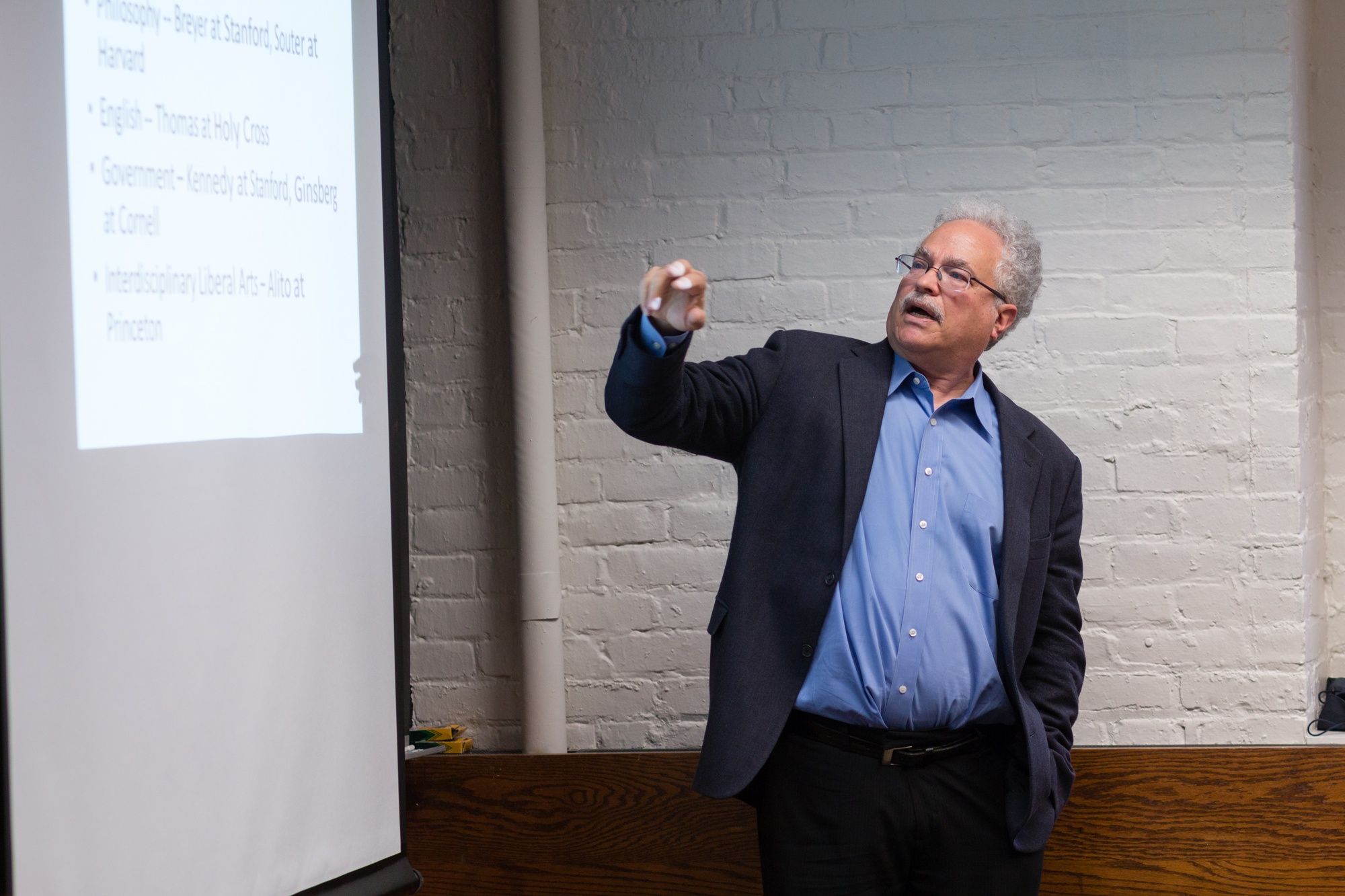
News
Harvard Grad Union Agrees To Bargain Without Ground Rules

News
Harvard Chabad Petitions to Change City Zoning Laws

News
Kestenbaum Files Opposition to Harvard’s Request for Documents

News
Harvard Agrees to a 1-Year $6 Million PILOT Agreement With the City of Cambridge

News
HUA Election Will Feature No Referenda or Survey Questions
Speaker Calls Ferguson ‘Failure of the Humanities'

George Lipsitz, a sociology and black studies professor at University of California Santa Barbara, called for the reorientation of the academic humanities toward promoting social justice in a discussion Friday afternoon, delivered as part of a speakers series at Harvard’s Charles Warren Center for Studies in American History.
Lipsitz’s talk, titled “Inured to Suffering: Ferguson as a Failure of the Humanities,” follows a December event co-sponsored by the Warren Center that focused on hip hop activism in the aftermath of the Ferguson shooting.

Speaking to an audience of roughly 40 people, Lipsitz argued that the August 2014 shooting of unarmed black teenager Michael Brown by a police officer in Ferguson, Mo., reflected a history of entrenched racism and socioeconomic inequalities that have been perpetuated by academic institutions.
He said students of the humanities should focus on identifying the systemic problems that cause individual tragedies and engage in meaningful dialogue with the communities they seek to understand. He also emphasized what he perceives as the need for universities to become more racially and socioeconomically inclusive, as well as more connected to the communities around them.
“We’re living in what I think is no ordinary time. There are times when there are crises of social and economic systems that create new cultures. It’s important for us to be part of our moment,” Lipsitz said.
In an interview before the talk, Walter Johnson, director of the Warren Center and a Harvard History professor, discussed the importance of the Ferguson shooting as a catalyst for dialogue.
“This is a moment for a fundamental reconsideration of a history of racial and economic discrimination. We can take those 90 seconds on Canfield Drive [the site of the Ferguson shooting] as a moment to consider the last 90 years of American history,” Johnson said.
John F. Bell, a member of the audience and a graduate student in American studies at Harvard, said before the event that he came to the talk because of his admiration for Lipsitz’s academic work and his interest in the topic.
“I think that the humanities have a lot to offer contemporary society and civic discourse, and it’s important that we make those connections, if only to remind people of our relevance,” he said.
Want to keep up with breaking news? Subscribe to our email newsletter.
Most Read
- Harvard’s Hyperfixation on Israel Is Academically Unserious
- Harvard Police Union Overwhelmingly Votes No Confidence in HUPD Chief Clay
- Trump Administration Conditions Harvard’s Funding on Eliminating DEI, Restricting Protests
- Facing Trump’s Ultimatum, Harvard Has No Easy Choices
- House Door Boxes Elicit Backlash Over Conservative Student Publication
